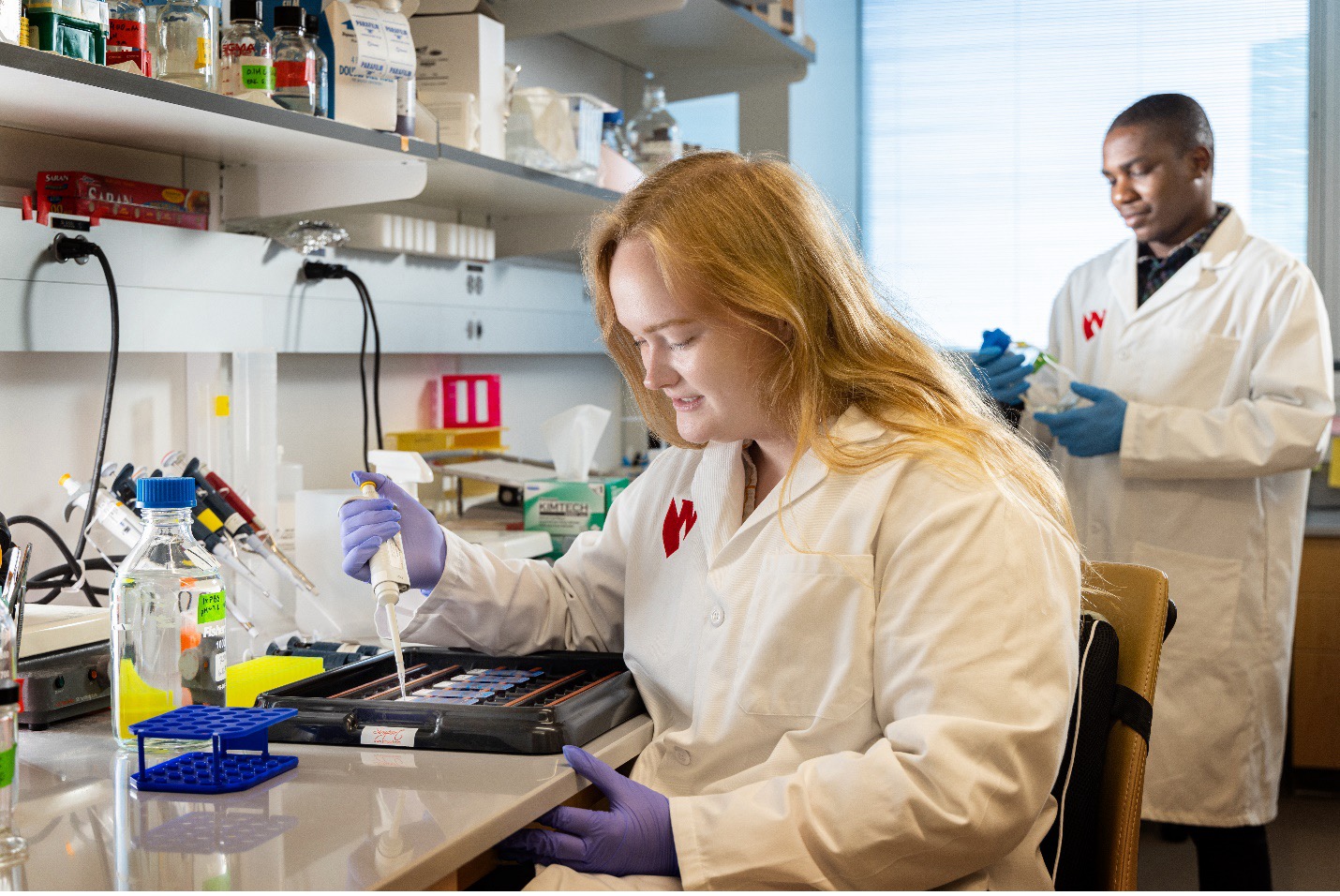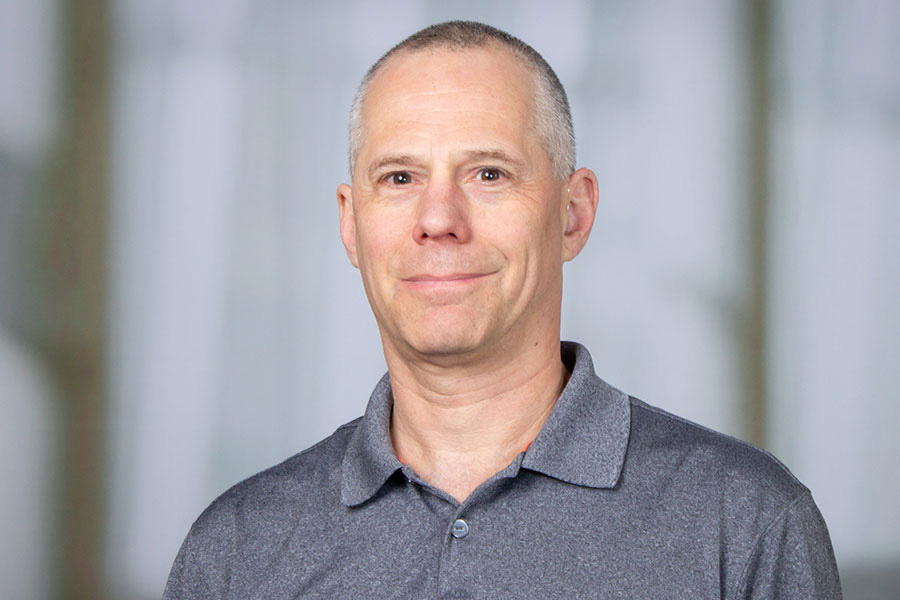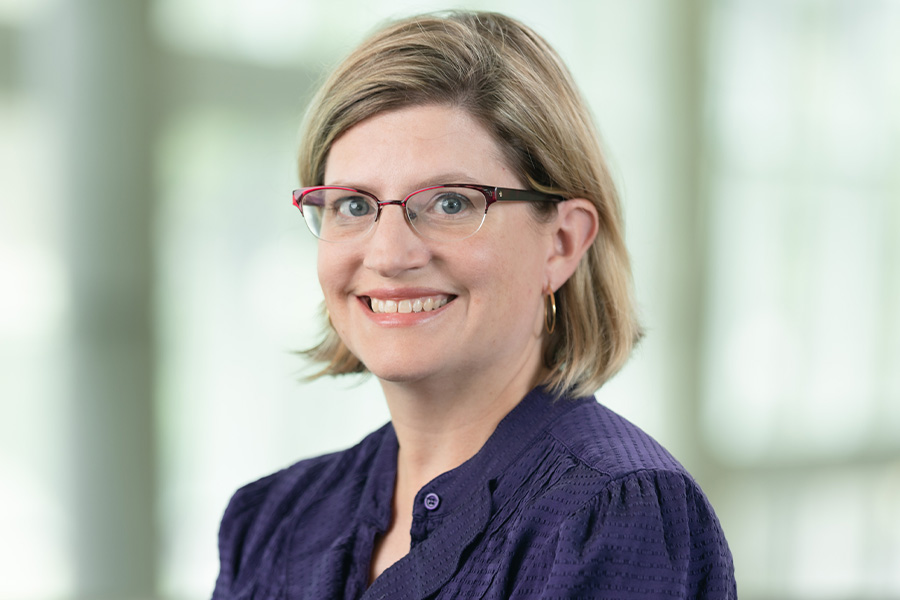Fundamental Training Program in Biochemistry & Molecular Biology

"Basic research has proven over and over to be the lifeline of practical advances in medicine. Without advances, medicine regresses and reverts to witchcraft." – Nobel Laureate Arthur Kornberg
Fundamental research in biochemistry and molecular biology is the very core of biomedical research. Drug discovery and future clinical trials rely on a foundational understanding of life at the atomic, molecular, cellular and physiological levels. New discoveries allow researchers to apply these findings for the targeting of new drugs to a multitude of diseases, including cancer, cardiovascular disease, neurological and developmental disorders, diabetes and infectious diseases.
The Fundamental Training Program in Biochemistry and Molecular Biology addresses the need for future scientists trained to provide key insight into the function of the human cell and discoveries that lead to the next generation of drugs and cures for human diseases.
As part of the program, students will be involved in cutting-edge biomedical research and make fundamental discoveries that impact a range of human diseases.
The program is highly competitive and supports only nine graduate students each year — six through an institutional T32 training grant funded by the National Institute of General Medical Sciences and three through UNMC funding.
A solid background in biochemistry and molecular biology forms the pillar of all biomedical research. Students who receive critical thinking and experimental training in fundamental biology will possess skills that allow that to succeed in academia, biotech industry and a variety of other careers in science.
Among the select courses in the program is "Critical Thinking in Biochemistry and Molecular Biology," a course designed to spur objective scientific thinking and reasoning, and promote discussion and skills in communication and writing.
The training program will also include a monthly seminar series where students present there research progress, career workshops with exposure to a variety of scientific careers, travel awards for participation in national meetings, and an annual symposium.
The Fundamental Training Program in Biochemistry and Molecular Biology has a large number of affiliated mentors who work on a wide range of biomedical questions.
Overall, there are three focus themes, Cellular Communication, Redox/Metabolism and Epigenetics/Chromatin, with mentors belonging to one of these groups. This provides an outstanding opportunity for students to select from roughly 40 different research topics.
- Students receive a fellowship that is in accordance with the recommended NIH predoctoral stipend.
- Travel awards support participation of students at national meetings.
- Students in the program are recognized as prestigious T32 training grant awardees.
- The training program is a platform for building skills and career development.
Eligibility
The Fundamental Training Program in Biochemistry and Molecular Biology values the richness of diverse scientific perspectives and approaches, which enhance innovation and discovery. We are committed to fostering an inclusive environment and strongly encourage applications from all highly qualified and meritorious predoctoral students. Selection is based on academic excellence and potential for scientific contribution.
- Candidates should be working on broadly related fields in the realm of biochemistry and molecular biology.
- Candidates must be PhD graduate students in good academic and overall standing.
- Candidates will typically be selected after their second year in the program for a period of two years, pending satisfactory progress.
- Mentors of the candidate must be on the list of approved T32 program faculty.
- Candidates must be US citizens or non-citizen nationals or have been lawfully admitted for permanent residence (in possession of a valid Alien Registration Receipt Card, or "green card") at the time of the appointment.
UNMC does not discriminate based on race, color, ethnicity, national origin, sex, pregnancy, sexual orientation, gender identity, religion, disability, age, genetic information, veteran status, marital status, and/or political affiliation in its programs, activities, or employment.
Application
The application period begins in summer 2024 with a start date of July 1. If you have questions about the program, please email one of the program directors.
Training Program Directors
Steve Caplan, PhD
Professor & Vice Chair for Administration,
Department of Biochemistry and Molecular Biology

Kate Hyde, PhD
Associate Professor & Biochemistry Graduate Committee Chairperson,
Department of Biochemistry and Molecular Biology

Rebecca Oberley-Deegan, PhD
Professor, Department of Biochemistry and Molecular Biology

Faculty Mentors
Our faculty mentors have a wide variety of expertise in areas essential to biomedical research. View the department's faculty directory.